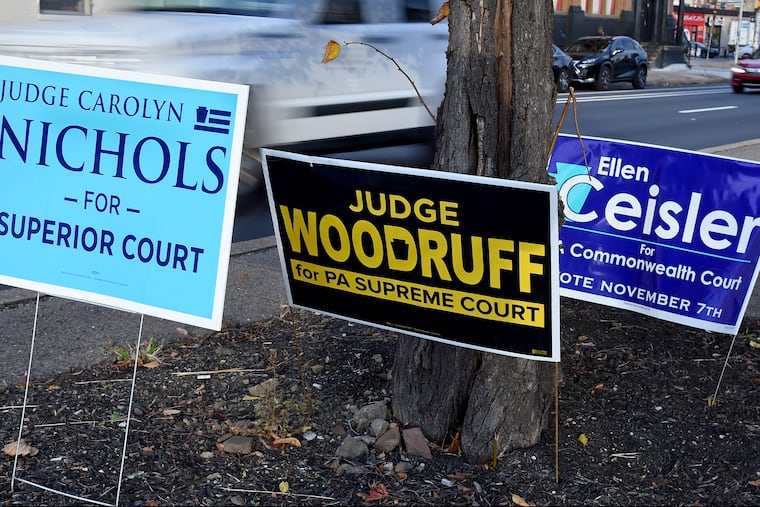Close down the circus: Replace judicial elections with merit selection | Editorial
The presence of money alone is not responsible for the judges that end up disgraced or behind bars, but its presence can taint even the best judges. The corrosive effects of money work over time until it is impossible for people to trust the court system.

As the gatekeepers of justice, the court system should be considered impartial, above reproach, and operating with scrupulous decorum.
In Pennsylvania, the court system can be a circus peopled with clowns, grafters, scammers, and too often gives off the fetid whiff of elephant droppings.
For example, the highest court in the state created – and later spit out — J. Michael Eakin and Seamus McCaffery, fans of pornographic and racists emails. Former Supreme Court judge Jane Orie Melvin was indicted for making her staff work on her election campaign. The city's Traffic Court was so rank it was eliminated; its symbolic ringleader, Willie Singletary, who among other offenses, showed an aide pictures of his genitals.
Money helps fuel this circus. In Pennsylvania, we elect judges in partisan elections. The presence of money alone is not responsible for the judges who end up disgraced or behind bars, but its presence can taint even the best judges. The corrosive effects of money work over time until it is impossible for people to trust the court system.
The latest disturbing episode: The state Supreme Court is preventing the release of a grand-jury report detailing sexual abuse and cover-ups in Pennsylvania Catholic dioceses. According to an Inquirer report, seven justices received nearly $200,000 in campaign contributions from lawyers and law firms involved with the clergy abuse case. Only a few have publicly disclosed these contributions; they aren't required to beyond campaign finance reports. The Inquirer examined reports to uncover contributions ranging from $6,000 to $60,670 to seven members of the Court.
The presence of campaign contributions does not mean the justices have been compromised in this or other decisions. But these contributions make it fair to wonder. And it only takes a sliver of wonder to drive a wedge into the perceived integrity of the courts.
There is a way around this: merit selection of judges, instead of elections. It would allow judges to be appointed, via a commission made up of gubernatorial and legislative choices.
Not everyone supports merit selection, but the arguments in favor are compelling. The oceans of money that flow into judicial races is unchecked in a state with few contribution limits; in 2015, spending on the Supreme Court campaigns alone exceeded $10 million. Establishing the right process for selection is important, and the process can go a long way to better transparency and accountability — and a less compromised view of the courts.
Pennsylvania for Modern Courts has spent years pushing for this reform. A bill that would begin the slow complicated process of the constitutional amendment that merit selection requires has finally shown signs of moving forward in Harrisburg, in a bill sponsored by Rep. Bryan Cutler (R-Lancaster County).
Before the General Assembly recessed, though, an amendment on a redistricting bill had the potential to undo those measures.
Procedural rules require the General Assembly to vote on merit selection before the current session is up later this year. Lawmakers are on recess now; it's a good time to remind them that it's time to close down the circus and restore order to the courts.